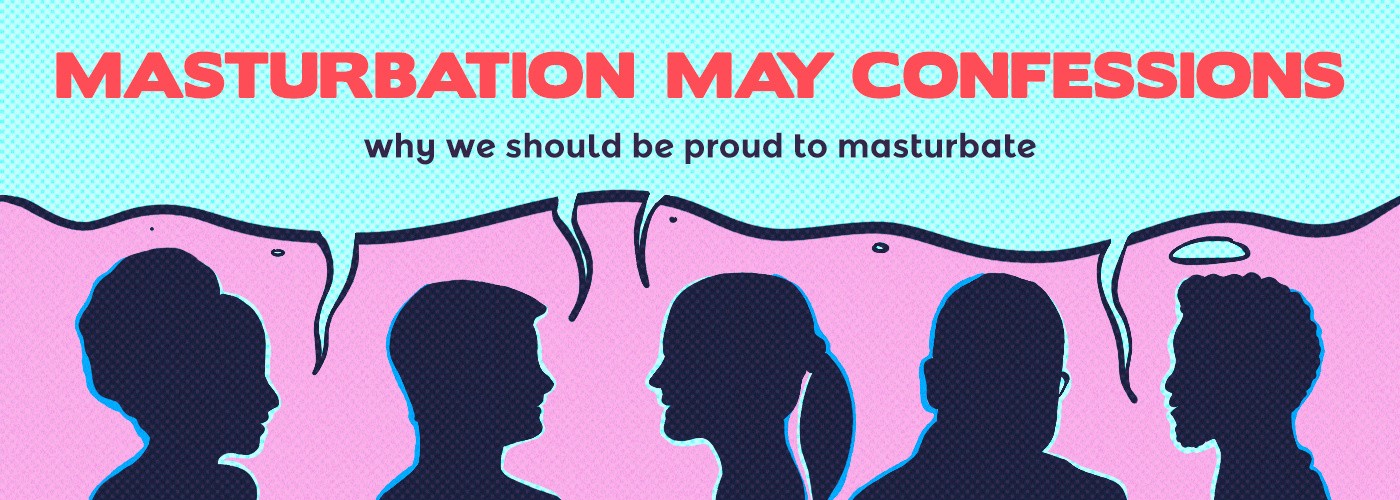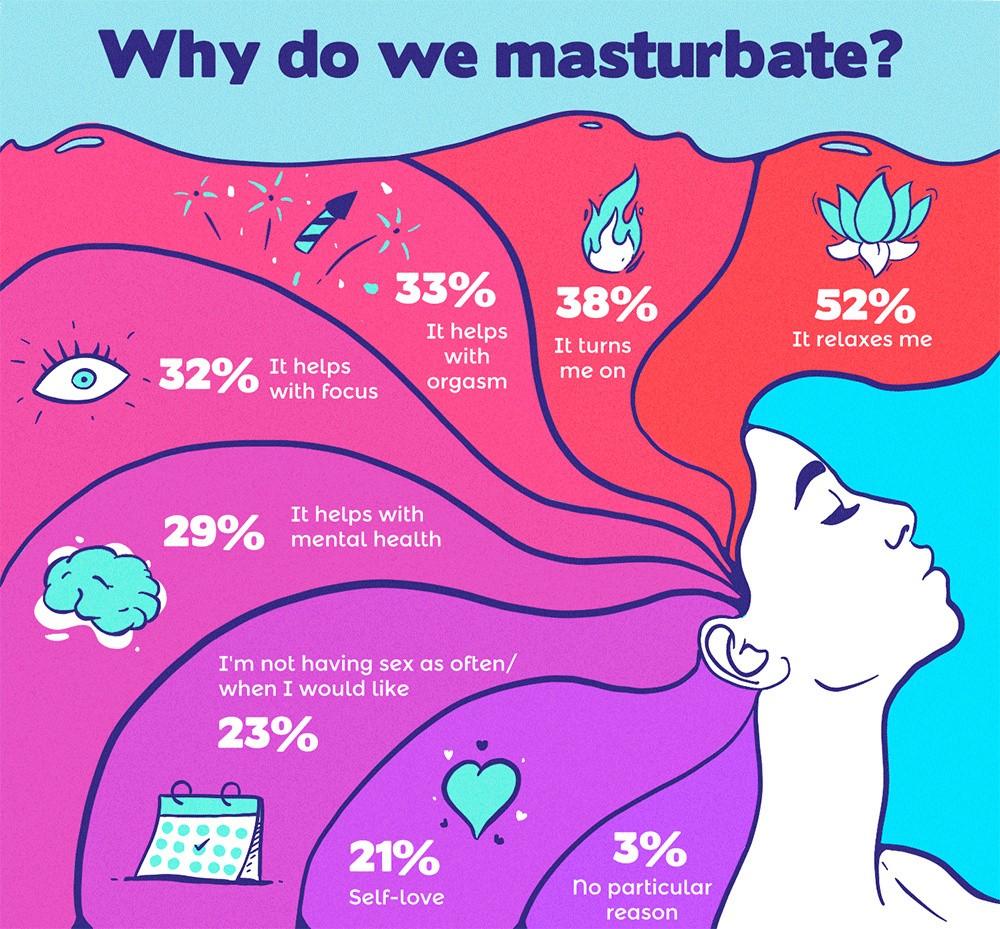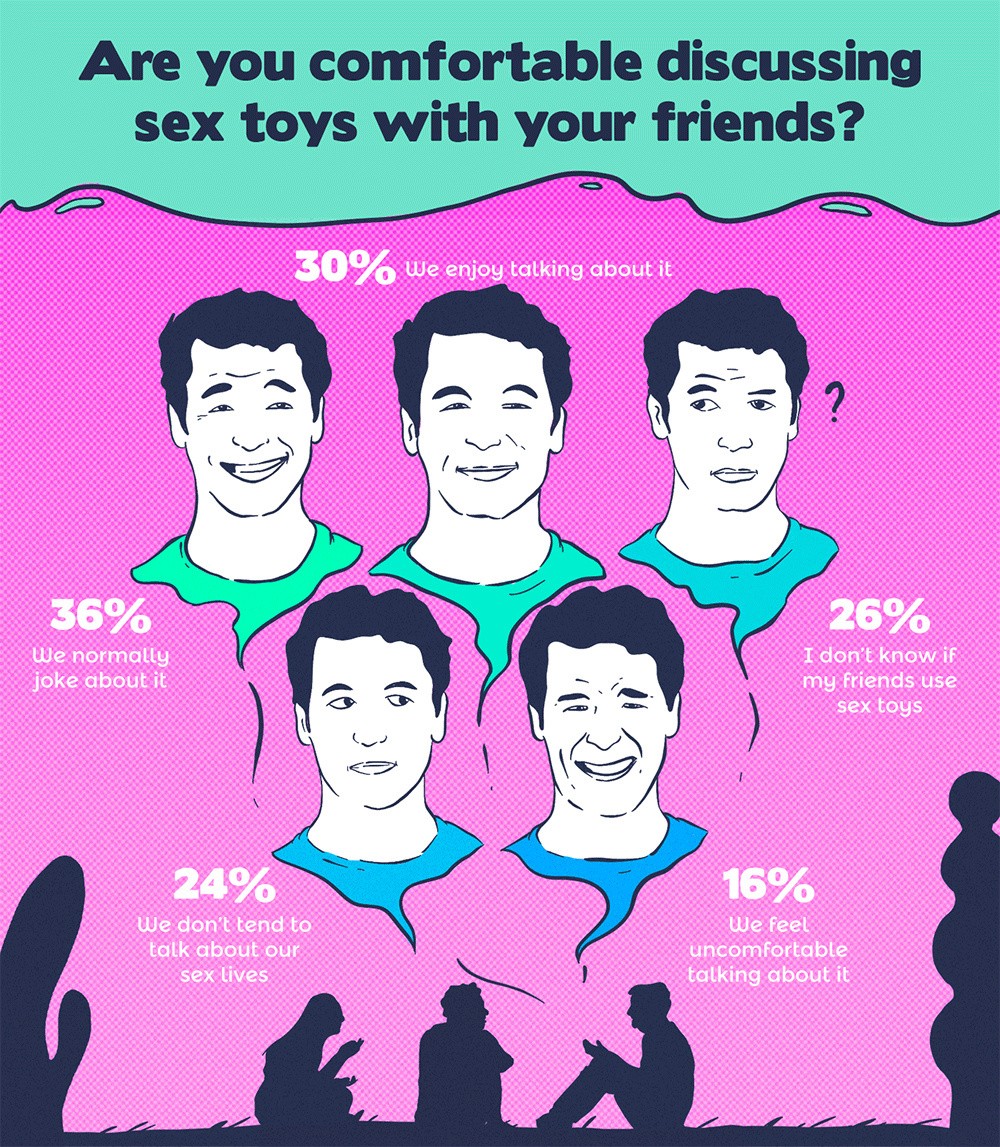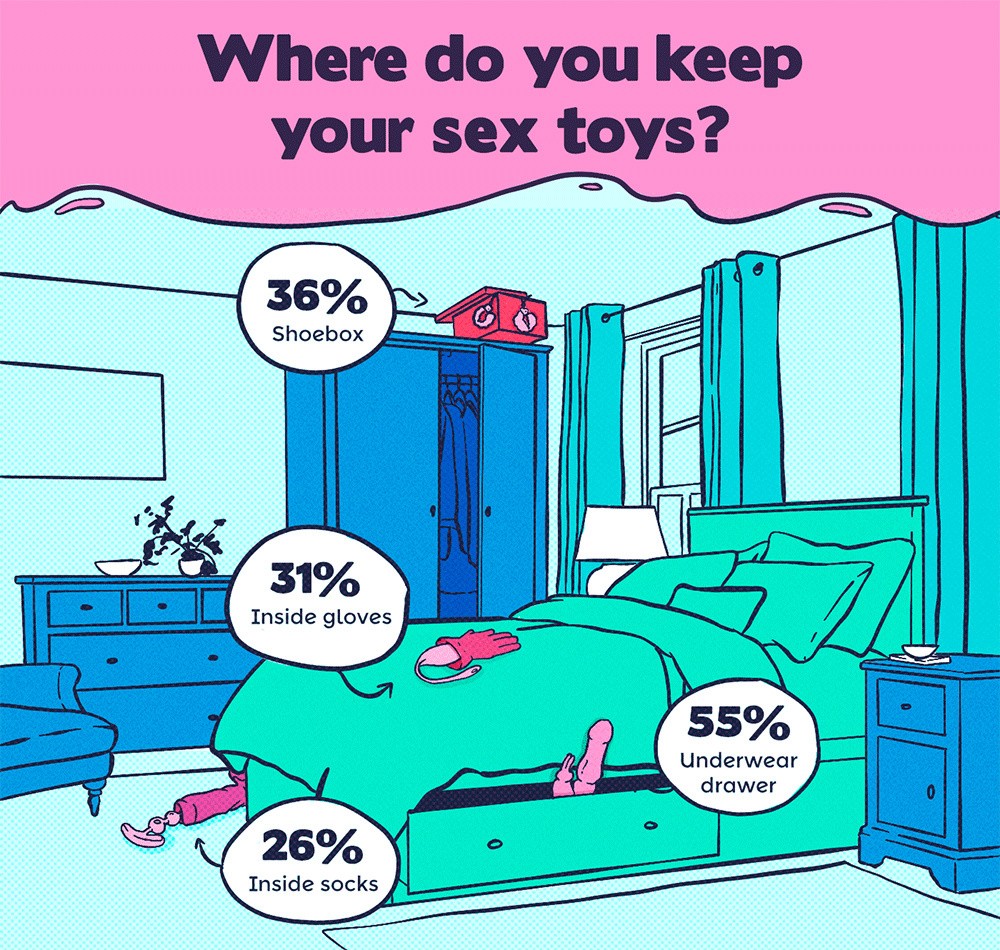Why We Should Be Loud and Proud About Masturbation
on Apr 28, 2021
In celebration of Masturbation May, get the lowdown on our masturbation habits with findings from our survey, plus insights from sexfluencer Ashley Cobb.

Masturbation May is upon us. A whole month to relish in the sheer, unadulterated bliss that is masturbation - we can barely hold in our excitement. Whether you’re a big lover of your solo play time or playing with a partner there is more your thing, masturbation is a great stress reliever as well as an awesome way to get to know your body and prioritise your sexual pleasure. Is there ever a better reason to make the most of it than May?
Masturbation is a natural and normal part of self-exploration and sex. While many people are comfortable talking about their escapades in self-love, for some, it’s a topic which can unfortunately be shrouded in shame and embarrassment.
But why? Isn't it about time we live in a world that’s sexually liberated enough to banish these inhibitions?
On a quest for answers, we took a deep dive into the menage-a-moi and surveyed 2,000 sexually active people over in the US about their masturbation habits and sex toy use. Our mate, Ashley Cobb who is a sexfluencer, blogger and orgasm activist broke it down for us with the findings providing some intriguing solo-play insights.
How often do we masturbate?
Most people surveyed (70%) masturbate at least once a month, which some might see as too much yet too little for others. The solo sessions reduce with age however, with almost a third (27%) of over 55s saying they never masturbate, compared to 4% of 18 to 24 year-olds who say the same.
“Solo sex has been proven to slow down with age,” Ashley explains, “which could be attributed to hormonal or life changes. As we age, we tend to have more responsibilities that come from work, family, and just life itself so we tend to not prioritise self-care, which includes masturbation. In addition to life, we experience hormonal changes that decrease our desire for sex itself. But as masturbation can be relieving, it’s important to prioritise pleasure.”
Getting down to some self-love was seen more so in single people with 50% jacking it several times a week compared to 1 in 3 people in new and long-term relationships.
Ashley says, “single people tend to masturbate more as sex with a partner may be not as readily accessible, while those in a monogamous relationship who see their partner regularly would more likely opt for sex with their partner than masturbating. But single or coupled, masturbation should still be a regular part of one’s self-care routine as solo sex can help us with more than just sexual satisfaction.”
Why do we masturbate?
Does it make you feel good? Yeah? Well we like to think that’s all the reason you need but we know that isn’t true. Masturbation has been found to aid with things like insomnia and stress so we know that rubbing one out comes with a multitude of reasons that are more nuanced, personal and far-reaching than just “getting off”.
We found that the main reason over half of us (52%) masturbate is to relax. This was chosen above anything else, including getting aroused (38%) and helping with orgasm (32%). This indicates we probably have the amount of stress in our lives to thank for that, as Ashley mentioned, but also that masturbating could possibly take the lead over sex to ease stress. That, and the realisation of how much solo-sessions play into alleviating tension for so many people,
The release of endorphins we feel when we masturbate (and especially when we reach the big O) can not only ease stress but also help our mental health too by boosting our mood. In our survey, we found 29% of people masturbate because it helps with mental health and when asked how masturbation makes us feel, 51% said “happy” and 41% said “more content”. Those are good odds if you ask us.
Masturbation as more than a sexual tool certainly isn’t a new concept, but it’s one that may not immediately come to mind when thinking of support mechanisms to improve mental health.
Why do we masturbate?
Does it make you feel good? Yeah? Well we like to think that’s all the reason you need but we know that isn’t true. Masturbation has been found to aid with things like insomnia and stress so we know that rubbing one out comes with a multitude of reasons that are more nuanced, personal and far-reaching than just “getting off”.
We found that the main reason over half of us (52%) masturbate is to relax. This was chosen above anything else, including getting aroused (38%) and helping with orgasm (32%). This indicates we probably have the amount of stress in our lives to thank for that, as Ashley mentioned, but also that masturbating could possibly take the lead over sex to ease stress. That, and the realisation of how much solo-sessions play into alleviating tension for so many people,
The release of endorphins we feel when we masturbate (and especially when we reach the big O) can not only ease stress but also help our mental health too by boosting our mood. In our survey, we found 29% of people masturbate because it helps with mental health and when asked how masturbation makes us feel, 51% said “happy” and 41% said “more content”. Those are good odds if you ask us.
Masturbation as more than a sexual tool certainly isn’t a new concept, but it’s one that may not immediately come to mind when thinking of support mechanisms to improve mental health.
How do we masturbate?
1 in 2 people said they use sex toys to masturbate (51%), that means a fair chunk who don’t use them. This could be because people would rather use a good, old-fashioned hand or they are unaware of just how big the exciting world of sex toys for masturbation is — not that we’re biased or anything… The more we normalise masturbation and sex toys, the more open we as a society will become and those who haven’t used sex toys before just might become more aware and decide to dip their toes in.
Overall, women are more likely to use sex toys to masturbate (62%) compared to men (49%). This could be to do with the fact that historically much of the industry has been “women-focussed”, as Ashley pointed out. It’s a two-pronged theory: generally speaking, people with vulvas find it harder to orgasm than people with penises and often need more foreplay – sparking demand for tools to help – but as Ashley explains “there’s a huge stigma around sex toys and men. Men are taught their penis is the only ‘toy’ they need, so many don’t see the need for a sex toy that enhances masturbation.”
Who knows about our sex toys?
If you’re honest about your sex toy usage, you’re not alone, as 2 out of 3 people say their partners know they use sex toys, which means a third (28%) haven’t told their partners.
While honesty is the best policy when it comes to sex and using sex toys, Ashley suggests why this might not be the case every time. “A lot of people hide their use of sex toys from their partners as a way to protect them from feeling inadequate or threatened. The idea that a man or woman has failed at sex if they can't give their partner an orgasm is not proof of their sexual inadequacy, but could rather be the result of several underlying factors such as inability to orgasm physically or lack of connection.”
At Lovehoney, we can’t recommend being open with your partner enough. Whether it’s about your sex, satisfaction or connection, communicating is the best way to make sure you are both on the same page and continue to progress and explore each other’s sexual pleasure. Who knows, maybe your partner has a secret sex toy too...
Whipping out the sex toys in front of partners not only gets easier with age but is apparently easier the longer the relationship too:
- More 25 to 34 year-olds hide their sex toys from their partners compared to 45 to 54 year-olds who are often proud to tell them.
- 48% of people in a new relationship have told their partner about their sex toys compared to 76% of those in long-term relationships.
We get it – talking about masturbation and sex toys with your friends is a very different vibe than with your SO or lover. When you’re with buddies, sex toys are often seen as something to laugh about but that being said, the majority of us enjoy talking about them and often joking about using them (61% combined).
Despite the majority of people being open to discussion about sex toys with our mates, most put them away in their underwear drawer, a shoebox, or inside socks. Even though they are usually kept in places they can’t be seem 1 in 4 people surveyed said they wouldn’t mind if they were to spot their friend’s sex toys in plain sight and almost a quarter (24%) would be happy to laugh about it.
These stats are proof that sex toys are something we should be proud of but above all that, as Ashley says, “they enhance the sexual experience, can spice things up in the bedroom, and having open conversations about what we want can lead to better sex.”
Would you be brave enough to introduce the little gadgets you use to get off into a conversation? Or maybe leave your dildo out for all to see? Considering how many of people masturbate and how good it makes us feel, it seems there’s a disconnect between our love of pleasuring ourselves and our openness about it in society particularly when it comes to sex toys. So, next time the opportunity presents, why not bite the bullet (vibrator) and shout about your self-love and sex toy pride.



